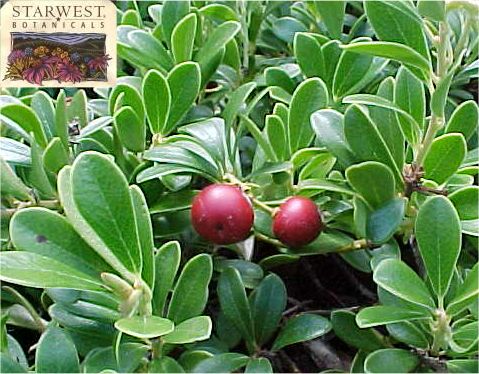|
Gardens Ablaze |
||
|
|
Uva Ursi/Bearberry |
|
|
Additional Uva Ursi Information
Medicinal Uses Site Map
Home |
Bearberry is a short woody evergreen shrub with trailing stems. The leaves are shiny, leathery, and quite attractive even in the fall, when they turn a pleasing bronze color. Flowering occurs late spring or early summer, with bright red berries following in the fall. The plant never needs fertilizing, rarely needs pruning, and will eventually spread 12-15 feet. It will tolerate some shade, but becomes sparse in heavy shade. Soil must be well-drained and acidic, and the plant will tolerate a wide array of soil types including sandy and rocky situations. Bearberry will not do well in the hottest zones - above zone 7 or so - but it does take well to container planting for those in the deep south who still wish to utilize the medicinal aspects of the plant. As noted above, berries are bright red and persist through the winter, making Bearberry a rare find for those looking for winter interest plantings for the landscape. The name Uva (berry) Ursi (bear) is a testament to the fact that bears love the berries of this plant and rely on them to make it through the winter. Berries can be used in jams, jellies, and as substitutes for any recipe calling for Cranberries. The leaves taste rather bitter and astringent and are used medicinally. See the links below for more information on culinary and medicinal uses of this Bearberry/Uva Ursi. Bearberry is most easily propagated by stem cuttings taken in the winter or by root division, as seed is rather difficult to start with this plant.
Custom Search
|
|
|
Gardens Ablaze |
||
 If
you have a hot, sunny area with poor soil somewhere in your garden and need
a good-looking evergreen
If
you have a hot, sunny area with poor soil somewhere in your garden and need
a good-looking evergreen